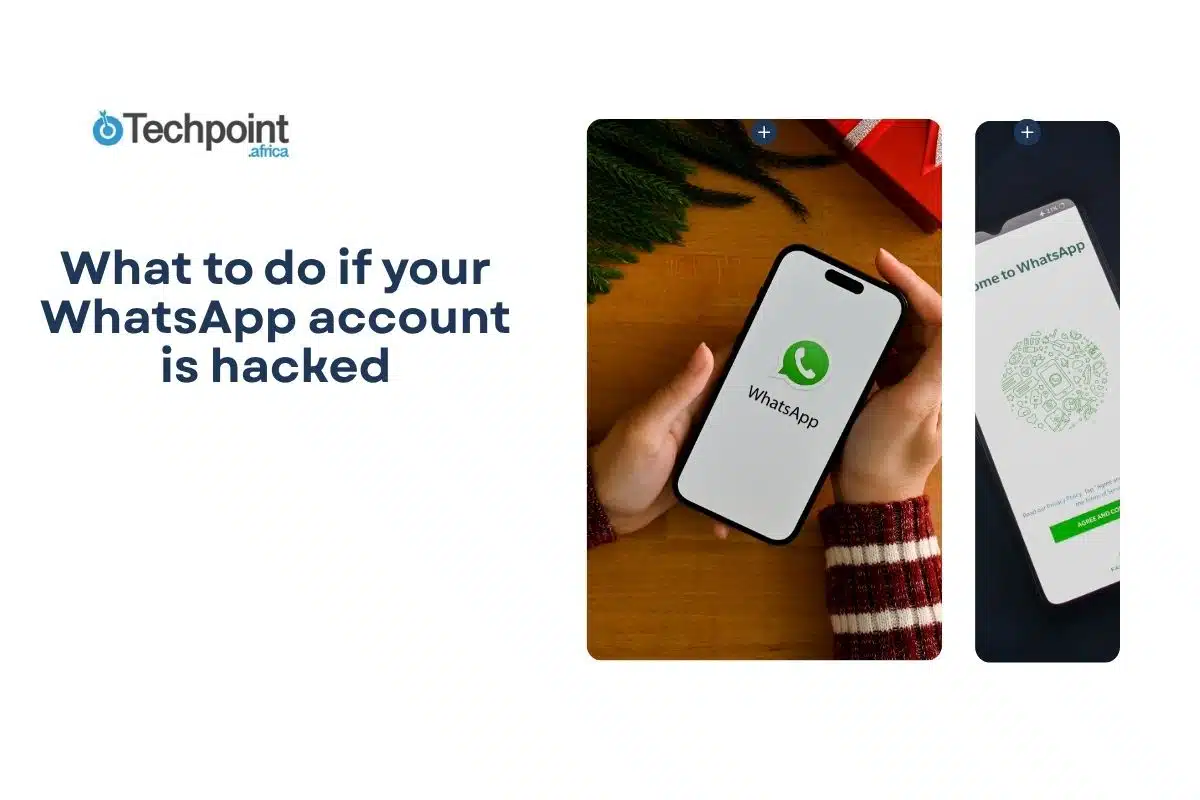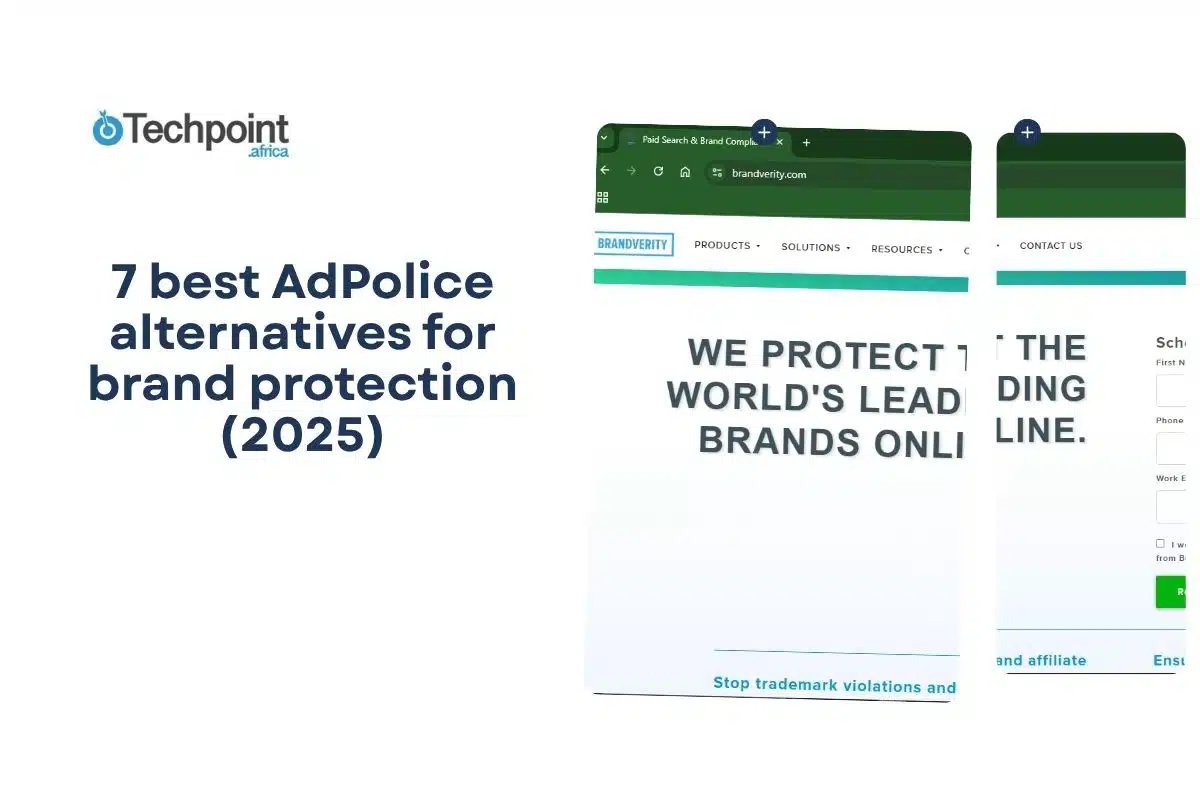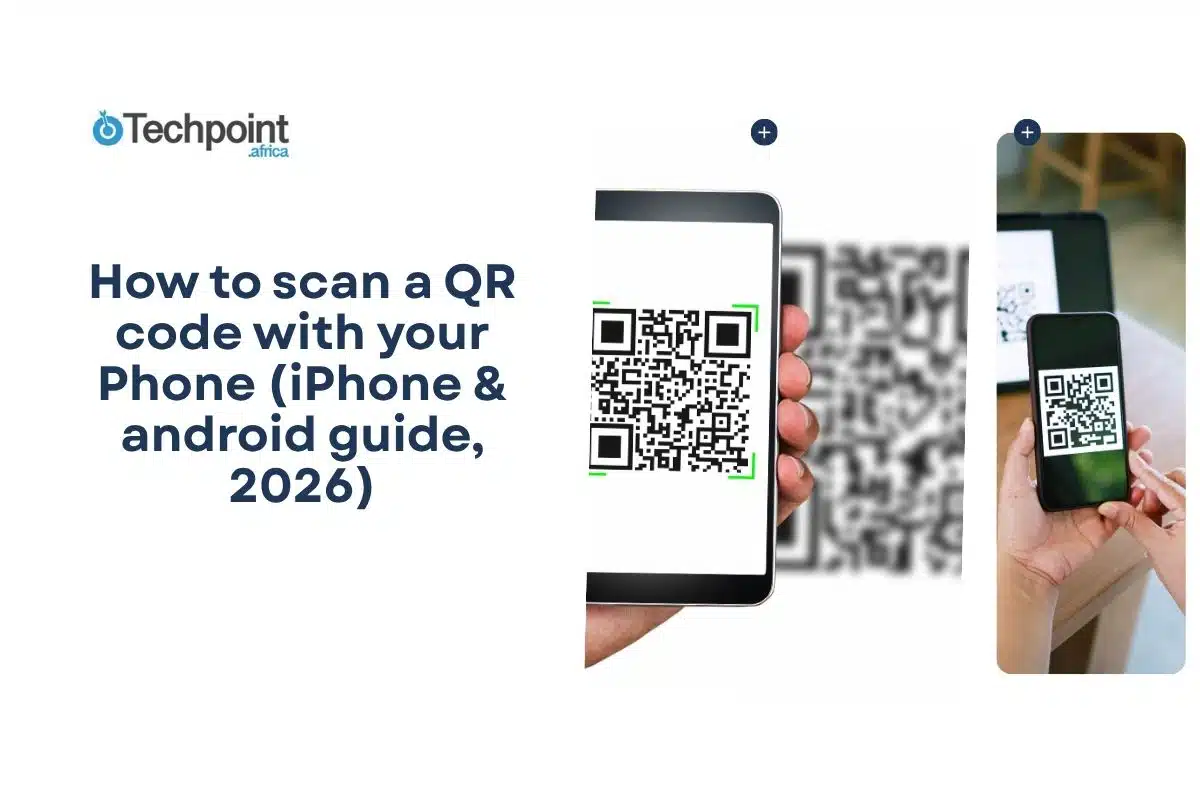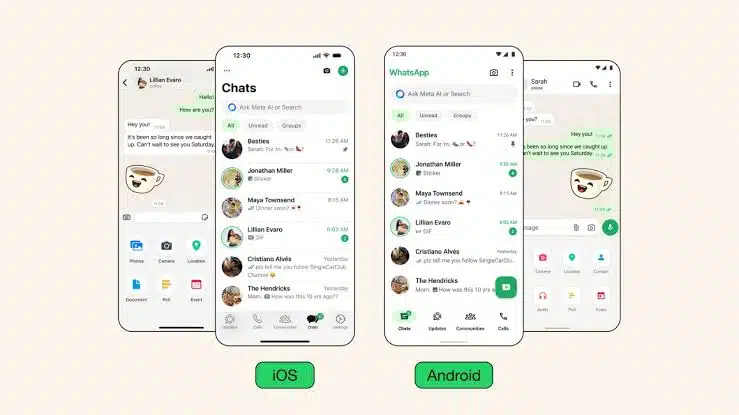
If your WhatsApp account has been hacked, it can feel like a full-blown emergency, especially if you’re suddenly locked out or your contacts start getting strange messages from your number.
Hackers often target accounts to scam your contacts, steal personal information, or take over your number entirely. These attacks are more common than you’d think, and they usually happen fast. So, the sooner you act, the better your chances of getting your account back and stopping any damage.
This article breaks down the warning signs, what to do if you’ve been hacked, and how to lock down your WhatsApp for good.
Signs your WhatsApp has been hacked
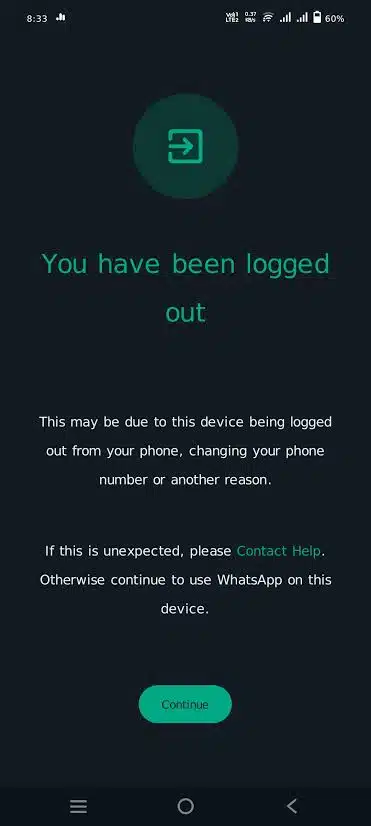
Before you panic, it’s important to confirm that your account has actually been compromised. Some issues, like accidental logouts or poor network sync, can mimic a hack. But if you notice any of the signs below, your account may be in the wrong hands:
- You were logged out unexpectedly: If WhatsApp suddenly asks you to verify your number again and you didn’t initiate it, someone else may have logged in from another device.
- Your contacts report strange messages from you: These are often urgent requests for money, suspicious links, or messages that don’t sound like your tone.
- You see unknown devices linked to your WhatsApp Web/Desktop: You can check this from your phone by going to Settings > Linked Devices. If you don’t recognize a session, that’s a red flag.
- You can’t log back in with your phone number: If someone else is actively using your WhatsApp account, they’ll block you from re-entering it unless you act fast.
- Your two-step verification PIN has been changed: If you had two-step verification enabled and you’re now locked out or receiving reset emails, your security was bypassed.
If you’ve experienced one or more of these, assume your account has been hacked and move to the next steps without delay.
What to do immediately if your account is hacked
Once you notice suspicious activity, time is critical. Here’s what you should do right away:
- Try to log back into your WhatsApp: Open WhatsApp and enter your phone number. If the hacker is still using your account, this will force them out. You’ll receive a 6-digit verification code by SMS, enter it as soon as it arrives. Never share that code with anyone.
- Enable two-step verification: If you regain access, go straight to Settings > Account > Two-Step Verification and set a 6-digit PIN. This prevents someone else from logging in without that extra layer of security.
- Alert your contacts: Send a broadcast message or post a status update letting friends and family know your account was compromised and they should ignore any strange messages from you.
- Check and remove unknown devices: Still in Settings > Linked Devices, log out any unknown sessions, especially ones you didn’t initiate.
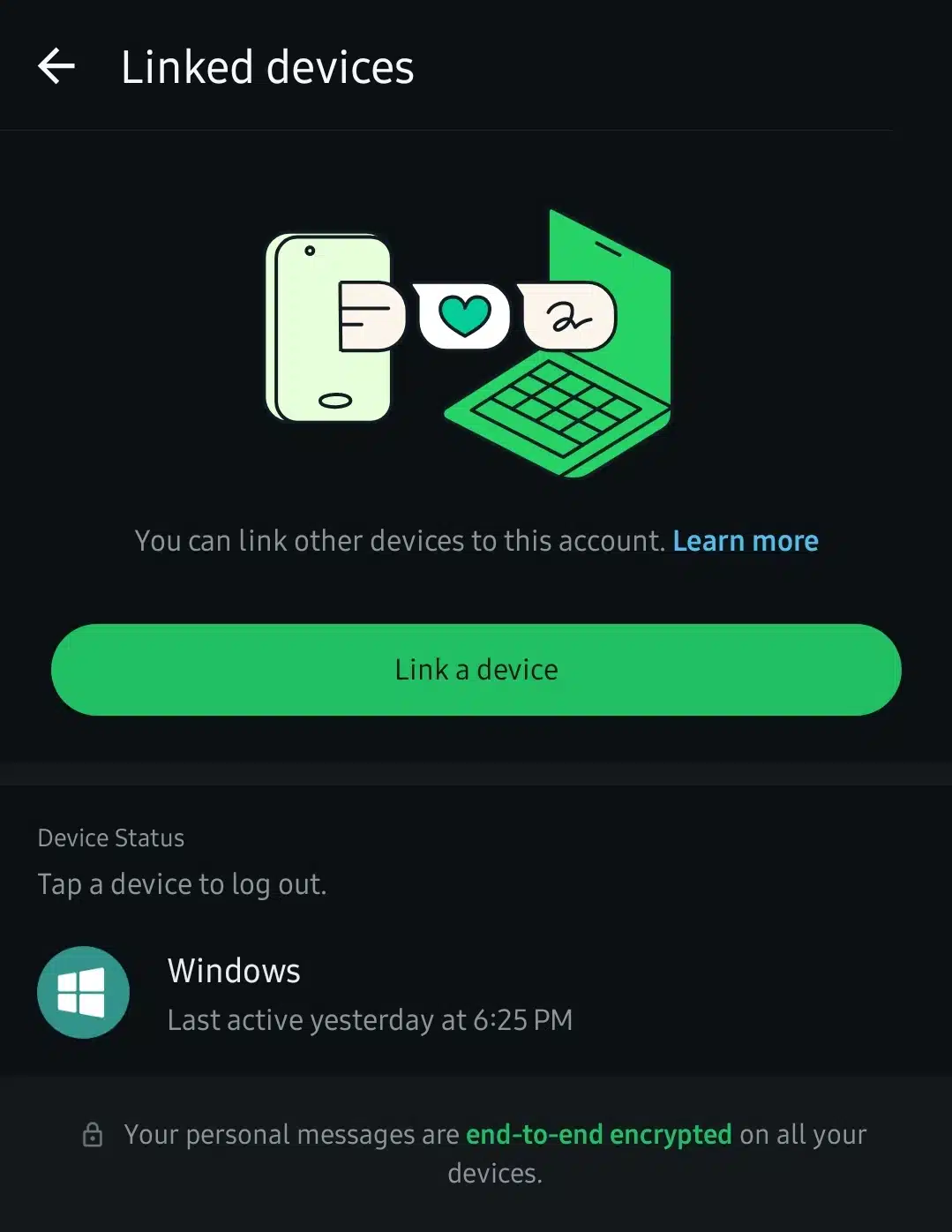
- Contact WhatsApp Support: If you can’t get back in or things seem off, email support at support@whatsapp.com. Include your phone number in full international format (e.g. +234XXXXXXXXXX), explain the issue, and request urgent action.
- Inform your mobile network provider: In cases where SIM swap fraud is suspected, contact your mobile carrier. They can block unauthorized activity on your line or help secure your SIM.
Acting quickly can stop the damage before it spreads. If you weren’t able to regain access, the next section covers what to do next.
If you can’t get back into your account
If the hacker has already taken control and you’re unable to log back in, don’t panic. There’s still a way to take your account offline and begin the recovery process:
- Email WhatsApp to deactivate your account temporarily
Send an email to support@whatsapp.com with the subject line: “Lost/Stolen: Please deactivate my account”
In the body of the email, include:
My WhatsApp number: +[country code][your number] I no longer have access to the account. Please deactivate it immediately.
This stops the hacker from sending messages or accessing your chats. The account will remain deactivated for 30 days, during which only you can reactivate it.
- Don’t create a new WhatsApp account on the same number right away.
Doing this without resolving the issue could give the hacker a second chance to hijack your access. Wait until you’ve heard back from support or confirmed that the account is secure.
- Let your contacts know
If possible, use another phone or channel (text, social media, email) to warn people that your WhatsApp was hacked and they should ignore any messages from your number. You could also call your mutuals to let them know what is happening.
- Monitor your SMS and email for verification codes or alerts
These may indicate the hacker is still trying to access your account. If you get unexpected codes, ignore them and never share them with anyone.
Once WhatsApp support responds or your account is deactivated, you’ll be in a better position to safely restore it later on.
What hackers typically do with a hacked WhatsApp account
Knowing what hackers are after can help you respond more wisely and protect your contacts from being tricked. Once someone gains access to your WhatsApp, here’s what they might do:
- Scam your contacts
The most common move is sending urgent messages pretending to be you, asking for money, airtime, or help with fake emergencies. They may say things like, “I need a quick loan, I’ll pay you back tomorrow,” or “Can you help me buy a recharge card real quick?” or “Can you help me to transfer money to this vendor, my bank app is not opening.”
- Collect personal information
If you don’t have two-step verification or a screen lock, they may browse your past chats, photos, and voice notes, especially looking for sensitive info like bank details, identity documents, or private conversations.
- Join or create suspicious groups
Some hackers use your account to spread spam, misinformation, or fraudulent links by adding your number to shady WhatsApp groups. This can get your number flagged or even banned by WhatsApp.
- Spread malware or phishing links
They might send dangerous links to your contacts. If someone clicks, it could install spyware or direct them to fake login pages that steal personal info.
- Use your number for impersonation
- With access to your contacts and message history, a hacker can convincingly pretend to be you, sometimes even outside WhatsApp.
Understanding these risks is what makes quick action so important. The longer a hacker has access, the more damage they can do, both to you and the people you care about.
How to prevent WhatsApp hacking
Prevention is always better than recovery. Most WhatsApp hacks happen because of weak security habits or social engineering, not technical flaws. Here’s how to protect yourself:
- Enable Two-Step Verification: This is your first and strongest line of defense. Go to Settings > Account > Two-Step Verification and set a secure 6-digit PIN. This PIN will be required whenever your number is registered on a new device.
- Never share your 6-digit verification code: Not with friends, not with family, and definitely not with someone claiming to be from WhatsApp. No one should ever ask you for this code.
- Ignore strange or urgent messages, even from known contacts: If someone asks for help, pause and confirm through another channel (like a phone call). Many hacks start by tricking people through a trusted contact’s compromised account.
- Avoid clicking on suspicious links: Even if it’s from someone you trust, be wary of unexpected links, especially those asking you to log in, download something, or claim a reward.
- Regularly review linked devices: Go to Settings > Linked Devices and log out of any session you don’t recognize. Do this often, especially if you’ve used public or shared computers.
- Keep your app and phone OS updated: Updates fix security gaps. An outdated WhatsApp or Android/iOS version can leave you vulnerable.
- Set up a screen lock on your WhatsApp: Enable biometric or passcode lock through Settings > Privacy > Fingerprint Lock (or Face ID, depending on your phone). This prevents physical snooping.
By combining these habits, you make it much harder for anyone to gain access, even if they somehow get your phone number or SIM.
How two-step verification works (and why it’s crucial)
Two-step verification (2FA) is one of the simplest but most powerful tools for protecting your WhatsApp account. It adds a layer of security that goes beyond just the 6-digit SMS code.
Once you enable it, WhatsApp will ask for a 6-digit PIN whenever someone tries to register your number on a new device. Even if a hacker somehow gets your SMS verification code, they won’t be able to complete the login without this PIN.
How to set it up
- Open WhatsApp.
- Go to Settings > Account > Two-Step Verification.
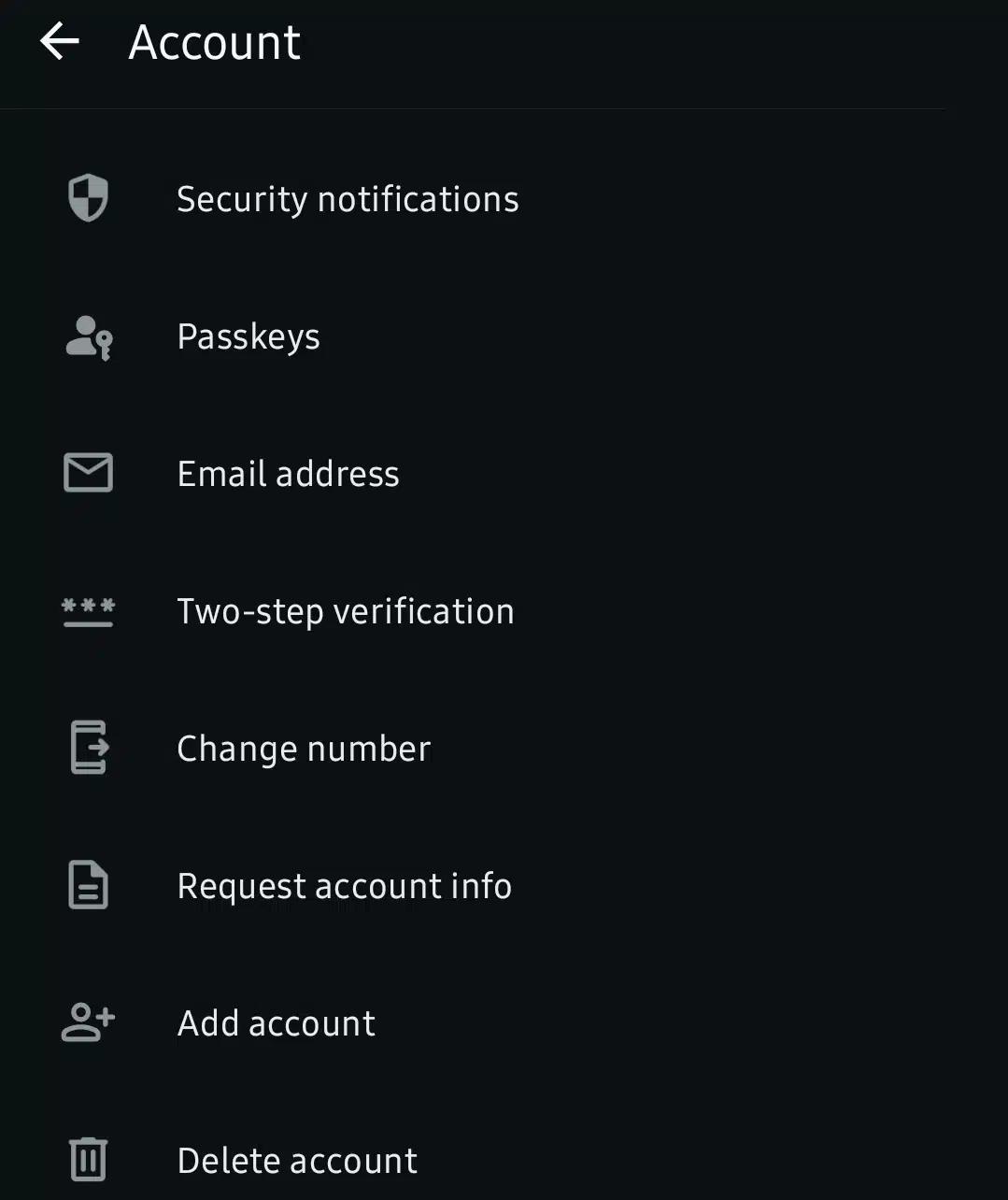
- Tap Enable.
- Choose a 6-digit PIN you can remember but that’s not easy to guess.
- (Optional but recommended) Add a recovery email. This lets you reset the PIN if you forget it.
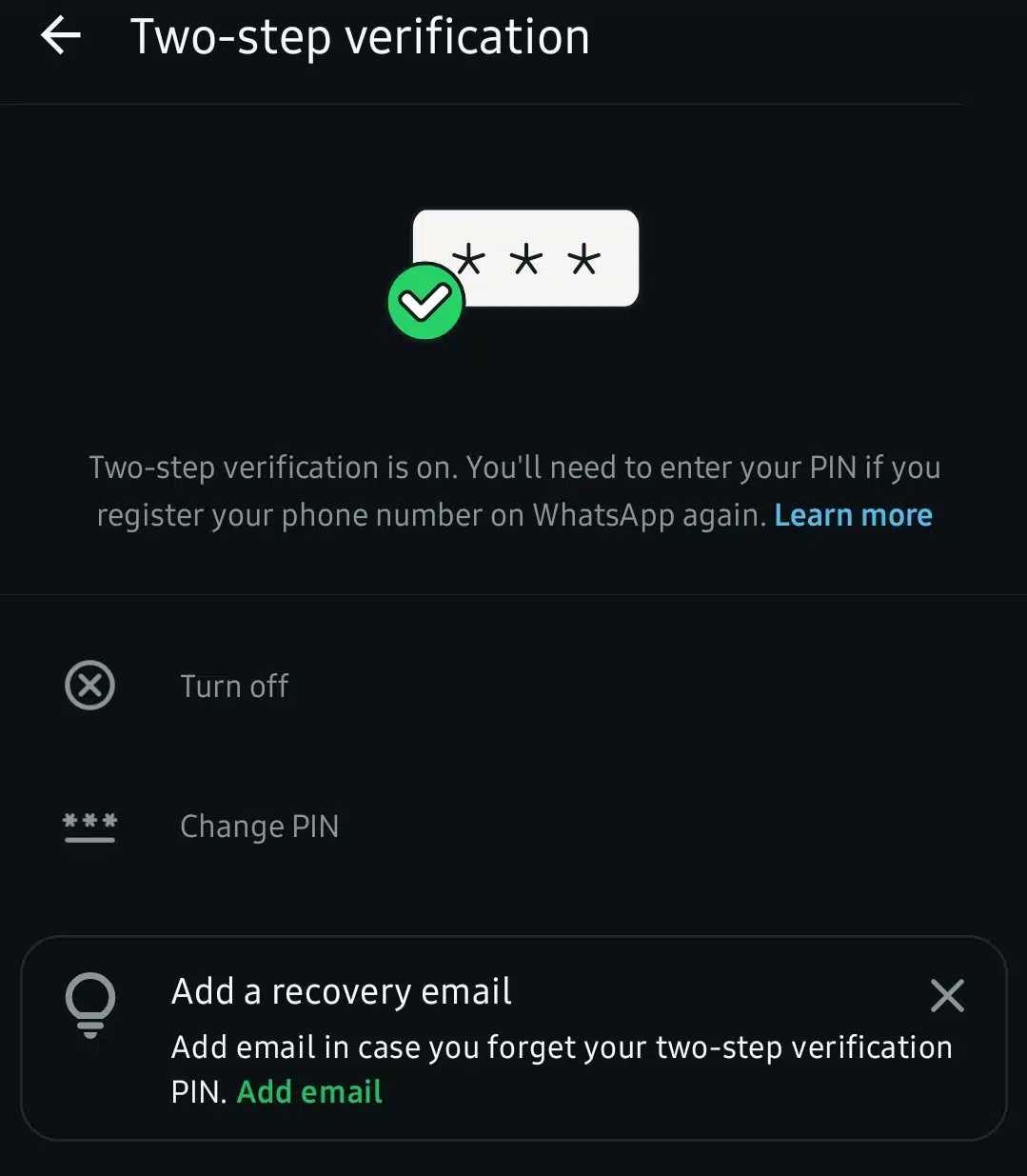
Why does two-step authentication matter?
- Prevents unauthorized logins.
- Keeps your account safe even if your SIM is hijacked.
- Gives you peace of mind that no one can easily take over your WhatsApp.
A surprising number of people never enable this feature until it’s too late. Don’t skip it.
Should you wipe your phone or reinstall WhatsApp?
In most cases, you won’t need to reset your entire phone if your WhatsApp was hacked. But there are situations where it’s worth considering, especially if something still feels off even after recovery.
When it makes sense to reinstall WhatsApp
- You’re back in your account, but it keeps logging you out unexpectedly.
- You’re seeing strange behavior in the app (e.g. slow performance, unreadable messages).
- You want a fresh start, just to be safe.
What to do
- Back up your chats via Settings > Chats > Chat Backup (to Google Drive or iCloud).
- Uninstall the app.
- Reinstall WhatsApp from the official app store.
- Restore your backup when prompted during setup.
- Re-enable two-step verification after setup.
When to consider a full phone reset (factory reset)
- Your phone shows signs of deeper infection: overheating, unusual apps, pop-ups, or data usage spikes.
- You’ve had other accounts compromised recently, not just WhatsApp.
- You suspect spyware or a compromised SIM.
Important: Back up essential files (photos, contacts, etc.) before a factory reset, and avoid reinstalling apps from unknown sources afterward.
This step isn’t necessary for everyone, but if your gut tells you something’s not right with your phone, it’s better to clean house than ignore potential risks.
How to keep your WhatsApp account safe after a hack
Once you’ve recovered your WhatsApp account (or protected it before a hack ever happens), staying secure isn’t just a one-time fix, it’s about building safer habits going forward.
Here’s how to keep your account safe from future attacks:
- Do regular security checks: Every now and then, check Linked Devices and make sure only your devices are connected. Also, review your two-step verification settings and update your PIN if needed.
- Use a secure phone lock: If someone can access your phone, they can open your WhatsApp. Use a fingerprint, face ID, or a strong passcode, not just a swipe or pattern.
- Educate your contacts: Let friends and family know about common WhatsApp scams. If they know not to trust urgent money requests, they’re less likely to fall for them, even if someone hacks your account again.
- Be cautious with public Wi-Fi and shared phones: Avoid logging into WhatsApp on devices you don’t fully trust. If you must, log out immediately afterward and clear your info.
- Update everything: Always run the latest versions of WhatsApp and your phone’s operating system. Updates fix security bugs that hackers often rely on.
- Think before you click: If a link looks suspicious, even if it’s from someone you know, pause. It could be part of another hacked account chain.
Staying secure on WhatsApp isn’t complicated, but it does require paying attention. Most hacks succeed because someone got too comfortable or clicked too fast. Don’t let that be you.
Quick recap checklist
Getting hacked on WhatsApp can feel overwhelming, but with the right steps, you can take back control and prevent it from happening again. Whether it was a one-time security slip or part of a bigger breach, don’t ignore the warning signs. Act fast, secure your data, and build better digital habits.
Here’s a quick recap of what to do:
Hacked WhatsApp recovery checklist
Try to log back in immediately using your phone number.
Enable two-step verification once you’re in.
Check and remove unknown linked devices.
Notify your contacts about the breach.
Contact WhatsApp Support if you’re locked out.
Request account deactivation via support@whatsapp.com (if needed).
Reinstall WhatsApp only after securing your number.
Reset your phone only if there’s deeper device-level suspicion.
Educate friends and family about scam messages.
Keep WhatsApp and your phone OS up to date.
Taking digital security seriously doesn’t require tech expertise, just awareness, quick action, and a few smart settings. Stay alert, stay protected.
Frequently asked questions about hacked whats app accounts
1. Can someone hack my WhatsApp without having physical access to my phone?
Yes. Most hacks happen remotely, usually by tricking you into giving up your 6-digit SMS code or through a SIM swap attack. That’s why enabling two-step verification is so important.
2. Will reinstalling WhatsApp remove the hacker from my account?
Not necessarily. If someone else is logged into your account, simply reinstalling the app won’t remove them. You must log back in with your number and verification code; this forces out all other sessions.
3. What if I forget my two-step verification PIN?
If you added a recovery email, you can reset your PIN through a link sent there. If not, you’ll have to wait 7 days before you can reverify your number without the PIN.
4. Can WhatsApp support recover my hacked account instantly?
No, not instantly. Support can deactivate your account and guide you through the recovery process, but it may take time. Acting fast and following the right steps increases your chances of regaining access quickly.
5. Will my chats and media be lost after a hack?
Only if you haven’t backed them up. If you’ve enabled cloud backups via Google Drive or iCloud, you can restore everything once you recover your account. If backups weren’t active, messages after the last backup may be lost.
6. Can I know who hacked my WhatsApp?
Unfortunately, no. WhatsApp doesn’t provide identity or location information about unauthorized users. Focus instead on recovery and future prevention.
7. Should I report a hacked WhatsApp account to the police?
Yes, especially if financial fraud, identity theft, or harassment was involved. A police report may also help if your SIM card or phone number was compromised.
Wrapping Up
A hacked WhatsApp account can feel like a personal violation: your conversations, your identity, even your relationships at risk. But the good news is: recovery is possible, and prevention is within your control.
Most breaches happen because of simple missteps, like sharing a verification code, ignoring security settings, or trusting the wrong link. This guide isn’t just about fixing the problem when it happens, but helping you avoid it altogether going forward.
Whether you’ve been hacked already or you’re here to stay one step ahead, the best time to secure your WhatsApp is now. Enable two-step verification. Stay alert. And make security part of how you use your phone every day.
You don’t need to be an expert to protect your digital life, just be a little proactive.
You may also like
| How to move WhatsApp data to iPhone 16 without computer | How to Allow pop-ups on iPhones |
| Fixes to random vibration on iPhone and Android |

